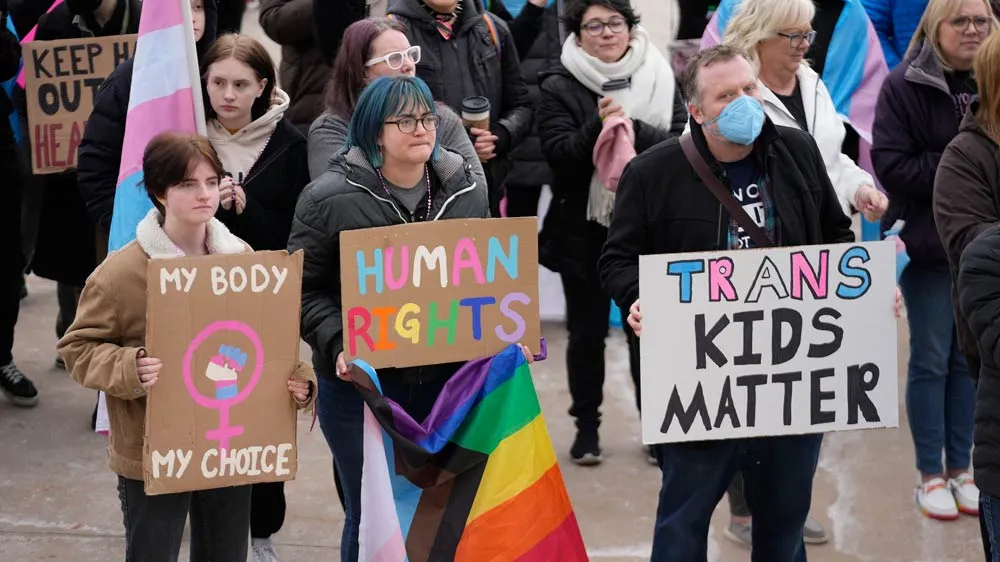June 12, 2021
White House Appoints Out, HIV+ Director for Office of National AIDS Policy
Kilian Melloy READ TIME: 3 MIN.
The White House announced the appointment of an out, gay, HIV-positive man, Harold Phillips, as director of the Office of National AIDS Policy, or (ONAP), government website HIV.gov reported.
"Ambassador Susan Rice, President Biden's Domestic Policy Advisor and head of the Domestic Policy Council, made the announcement in a Twitter thread recognizing the 40th anniversary of the publication of the first reports of what later became known as AIDS," the HIV.gov post noted.
Phillips officially took on the role on June 7, the website said. He has lived with HIV since 2005.
"I look forward to continuing the work we have begun to end the HIV epidemic," Phillips said in "a message to colleagues on his first day," the website reported. "President Biden is committed to ending the HIV epidemic and has called for bold and accelerated steps to achieve this aim."
Phillips "shared that as part of those efforts, ONAP would lead the development of a new National Strategy on HIV/AIDS which updates the HIV National Strategic Plan released in January 2021," HIV.gov added.
"This strategy will build on the existing plan, incorporate the priorities of the Biden-Harris administration, and include additional input from other federal agencies to help better address social determinants of health and improve health equity, he noted," the website's text went on to say.
UCLA's Dr. Michael Gottlieb wrote what is now recognized as the first medical report on AIDS, though that term – an acronym of Acquired Immune Deficiency Syndrome – had not yet been coined.
NBC News recalled that the document was "an official Centers for Disease Control and Prevention report about patients diagnosed with a lung infection common in what would come to be called AIDS." That report appeared in the CDC's Morbidity and Mortality Weekly Report on June 5, 1981, NBC News detailed.
The role of the U.S. government in combatting HIV/AIDS has evolved considerably in the 40 years since then, though its approach – as noted in a recent EDGE article – has been "haphazard." It wasn't until four years after Gottleib's report, in 1985, that then-President Ronald Reagan so much as said the word "AIDS."
But Reagan's successor, George H.W. Bush, took a different tack. Even as vice president under Reagan, Bush took the pandemic seriously. National Institutes of Allergy and Infectious Diseases Director Anthony Fauci recalled last year in a conversation with Dr. Sanjay Gupta on Gupta's CNN podcast "Coronavirus: Fact vs. Fiction" that Bush "came to the (National Institute of Health) in the late '80s when he was vice president and was thinking of running for president, and he sincerely wanted to learn about HIV."
Fauci – who has been the head of the NIAI since 1984 – went on to say that Bush's successor, Bill Clinton, "had all the right vibes about what to do" regarding the AIDS crisis. After George H.W. Bush's son, George W. Bush, succeeded Clinton as president in 2000, Fauci recalled that he "had the privilege of being close to him and developing PEPFAR," or President's Emergency Plan for AIDS Relief, a government program that fights HIV/AIDS not just at home, but around the world.
Fauci called PEPFAR "one of the most important things any American president has ever done."
Even Donald Trump, during his tenure in the White House, called for AIDS to be eradicated, saying he wanted the goal accomplished within ten years. Though the sentiment was lauded, it was also greeted with skepticism, with advocacy organizations contending that the Trump administration's policies had "further marginalized people living with HIV," and the stated goal itself had been "undermined" by the administration's "record and rhetoric".
Phillips' appointment is the latest in an astonishing wave of LGBTQ appointments to governmental agencies made by the Biden administration. But when it comes to AIDS, in many ways, it has been the government that has followed the lead of the people over the last four decades – particularly the LGBTQ community, which came together, organized, and pushed back as never before against institutional hostility and indifference during the worst of the AIDS crisis in the 1980s and 90s.
Kilian Melloy serves as EDGE Media Network's Associate Arts Editor and Staff Contributor. His professional memberships include the National Lesbian & Gay Journalists Association, the Boston Online Film Critics Association, The Gay and Lesbian Entertainment Critics Association, and the Boston Theater Critics Association's Elliot Norton Awards Committee.


